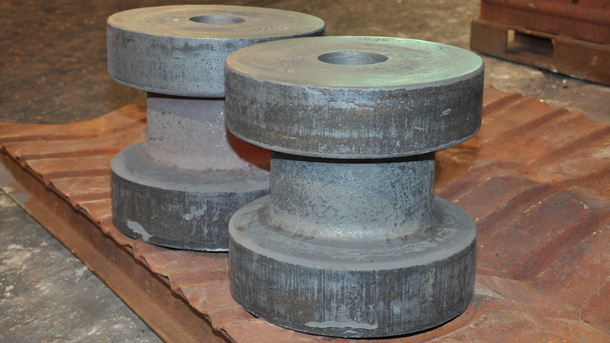Forging delivers significant economic, manufacturing and quality advantages, such as directional strength, structural strength and impact strength compared to alternative metalworking processes.
Directional Strength
Forging produces predictable and uniform grain size and flow characteristics by mechanically deforming the heated metal under tightly controlled conditions. Forging stock is also typically pre-worked to refine the dendritic structure of the ingot and remove porosity. These qualities translate into superior metallurgical and mechanical qualities and deliver increased directional toughness in the final part.
Structural Strength
Forging also provides a degree of structural integrity unmatched by other metalworking processes. Forging eliminates internal voids and gas pockets that can weaken metal parts. By dispersing segregation of alloys or non-metallic, forging provides superior chemical uniformity.
Simulation & Modeling Reduce Risk, Time & Costs
Collaborating closely with customers, the team runs sophisticated simulation and modeling software to tailor a forging process that optimizes time/cost savings. This software also allows for process validation prior to actual manufacturing, reducing risk and ensuring the success of each project.
